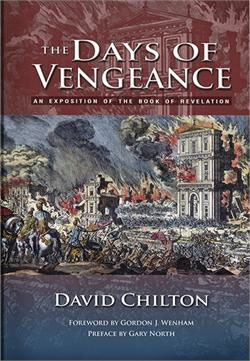Apr
15
2009
“We shall be gods”
 “Therefore, if you died with Christ from the basic principles of the world, why, as though living in the world, do you subject yourselves to regulations — “Do not touch, do not taste, do not handle,” which all concern things which perish with the using — according to the commandments and doctrines of men? These things indeed have an appearance of wisdom in self-imposed religion, false humility, and neglect of the body, but are of no value against the indulgence of the flesh.” Colossians 2:20-23
“Therefore, if you died with Christ from the basic principles of the world, why, as though living in the world, do you subject yourselves to regulations — “Do not touch, do not taste, do not handle,” which all concern things which perish with the using — according to the commandments and doctrines of men? These things indeed have an appearance of wisdom in self-imposed religion, false humility, and neglect of the body, but are of no value against the indulgence of the flesh.” Colossians 2:20-23
As with nearly everthing in the Bible, the roots of this go back to early Genesis.
Continue reading
1 comment | tags: Adam, Bible history, Daniel, Esther, Food laws, Genesis | posted in Biblical Theology
Apr
11
2009

There are conflicting traditions concerning John. A widely held opinion is that he was banished to Patmos by the Emperor Domitian who reigned from AD 81 through 96. If so, this makes preterism a paper tiger.
Continue reading
Comments Off | tags: Bible history, Church History, David Chilton, Ezekiel, John, Kenneth Gentry, Literary Structure, Preterism | posted in The Last Days
Apr
10
2009
or An answer for those who think modern day Israel has any special place in Bible prophecy.
After the scattering at Babel, the Lord tore the world in two by calling Abram. With the end of this large Division, signified by circumcision, there was no more distinction between the priest nation and the Gentiles. James Jordan writes:
Continue reading
Comments Off | tags: Abraham, Babel, Bible history, Dispensationalism, James Jordan | posted in Biblical Theology, The Last Days, The Restoration Era, Totus Christus
Apr
10
2009

“While he languished in prison, Joseph had no idea what was going on in Pharaoh’s heart. He did not realise that God the Holy Spirit was at work making Pharaoh dissatisfied. He did not know that one night God would bring His Word to Pharaoh and Pharaoh would need someone to interpret it. He did not know that one day his suffering would be rewarded, and he would stand before the king of the earth.
This should encourage us. We pray for our rulers and those in authority over us, but we don’t see them change. We have no way of knowing, however, what God may be doing. Our God is still the “God of Nightmares”! In our secular humanist society, Christians are often “in prison” in various ways. Yet God’s Word is faithful, and the time will come when secular society will turn to God’s people for help.
May we be ready for the day we stand before kings.”
- James B. Jordan, Primeval Saints, p. 140.
Comments Off | tags: Bible history, James Jordan, Joseph, Pharaoh | posted in Biblical Theology, Quotes
Apr
10
2009
A Conspiracy of Nations
Amalek is the archenemy of the saints. This first Amalek most likely descended from Japheth. Numbers 24:20 paints him as the original great “Sea beast”, and a counterfeit Alpha and Omega.
“Amalek was the first of the nations, but his end shall be destruction.”
Esau moved to Mount Seir and merged with the Horites to become ahybrid part-Canaanite people known as Edomites. One of Esau’s grandsons was named Amalek (Genesis 36:16), which shows a conscious or subconscious alliance between Gentile hatred and false brother hatred of God’s chosen son—a “Land beast”. This has an enormous impact on interpreting the later history of the Bible.1
Continue reading
Comments Off | tags: Amalek, Bible history, Deborah, Edomites, Esau, Jabin, Jericho, Judges, Resurrection, Sisera, Solomon, Typology | posted in Against Hyperpreterism, Biblical Theology, The Last Days
Apr
10
2009
Saul and Agag
 I puzzled over Ezekiel chapters 38 and 39 for years. Bible commentators suggested many things but nothing seemed to fit the historical context of the surrounding chapters. It seems James B. Jordan was the first to put the pieces together.1
I puzzled over Ezekiel chapters 38 and 39 for years. Bible commentators suggested many things but nothing seemed to fit the historical context of the surrounding chapters. It seems James B. Jordan was the first to put the pieces together.1
Continue reading
Comments Off | tags: Amalek, Atonement, Babylon, Bible history, Esther, Ezekiel, Gary DeMar, Haman, James Jordan, Mordecai, Saul, Typology | posted in Against Hyperpreterism, Biblical Theology, The Last Days, Totus Christus
Apr
10
2009
Land.

I read David Chilton’s The Days of Vengeance in 1989, and it sure surprised me to learn that the word ‘earth’ in the Bible also means ‘land.’ This simple fact alters the scope of John’s Revelation entirely. It is about God’s ending of the Covenant He restored after the Babylonian captivity, and so first century Judah is the main subject. It was a repeat of events in Jeremiah’s day, so let’s backtrack a little…
Continue reading
15 comments | tags: AD70, Bible history, Compromise, David Chilton, Dispensationalism, Exile, Ezekiel, Noah, Resurrection, Temple | posted in Against Hyperpreterism, Biblical Theology, The Last Days, The Restoration Era
Apr
10
2009
In recaptulating Israel’s history, the seven letters in Revelation 2-3 confirm that the true Israel was transformed by the death and resurrection of Christ, progressing from Firstfruits through Pentecost to Trumpets. James Jordan writes:
“[Bible chronology] is a history of how the Divine Parent educated the core and centre of the human race, and then of how He called all nations to be grafted into that Olive Tree history so as to receive the benefit of it… The human race had matured to the point where it was fitting for Messiah to come, and come not only to save the race, but to bring the race to maturity… And then we can notice that the seven churches in Revelation 2-3 are each associated with a particular time in Old Covenant history. We can begin to apply the societal wisdom we have begun to learn from Israel’s history to address the particular problems and issues in our own churches. Is your church most like Pergamum? Well, that’s the wilderness church. Perhaps your church is made up of people who need to be addressed in a Law-oriented fashion. If your church is like Thyatira, maybe a strong dose of Psalms. If like Sardis, you need Jeremiah. And so forth.”
http://www.biblicalhorizons.com/biblical-horizons/no-195-how-to-do-reformed-theology-nowadays-part-4/
Comments Off | tags: Bible Chronology, Bible history, Feasts, James Jordan, Psalms, Revelation | posted in Biblical Theology, Totus Christus
Apr
10
2009
No Bible commentary is the last word, but James Jordan’s seven-year effort gets the ball through the hoop on Daniel. Here’s an excerpt from David Field’s review:
The approach of the book is marked by
 1. Immersion in and informed reference to the rest of the Hebrew Scriptures. The use of Genesis, Exodus, Leviticus, Ezra-Nehemiah, Esther, Isaiah, Jeremiah, Ezekiel, and Zechariah is astonishing and enriching at every turn. Use of or comment upon other books along the way are unfailingly stimulating and this applies to NT books as well, not least to Revelation which is greatly illumined by this work on Daniel.
1. Immersion in and informed reference to the rest of the Hebrew Scriptures. The use of Genesis, Exodus, Leviticus, Ezra-Nehemiah, Esther, Isaiah, Jeremiah, Ezekiel, and Zechariah is astonishing and enriching at every turn. Use of or comment upon other books along the way are unfailingly stimulating and this applies to NT books as well, not least to Revelation which is greatly illumined by this work on Daniel.
2. Confident deployment of redemptive-historical paradigms which have themselves been recognized through close and repeated study of the whole Bible. In particular, theologico-spatial zones, old creation /new creation eras, and prophet /priest /king roles feature heavily and often have real power to unlock or clarify the subject in hand.
3. The closest of close structural analysis of the sort that comes from multiple readings. Chiasms and parallels and other patterning devices are attended to with great care and in such a way as positively informs the interpretation rather than being mere observations along the path.
4. Seriousness about chronology. This is one of the characteristics of Jordan’s work overall, since he sees emphasis on “ideas” at the expense of history as revealing and strengthening the gnosticism of much contemporary Christianity. The detailed chronological work lying behind his interpretation of Jeremiah and Ezekiel and his resolution of some of the Daniel “difficulties” is awesome.
5. Interpretative weight given to what still gets called “inter-testamental” history. Inter-testamental history is redemptive history and Jordan emphasizes that God speaks to and about that period in the patterns of Daniel 1-6 and in the prophecies of Daniel 1-7.
6. Attention to numerics: word-counts, significant numbers, and the meaning of numbers. There is work here to compare with Bauckham’s work on Revelation.
7. Typology. This is not a “typological” commentary as such because although half of Daniel is narrative, half of it is apocalyptic prophecy. But when you attend to redemptive-historical patterns and to literary structures and sequences and to the importance of history as Jordan does, then, in some sense, all your work will be typological. At the macro-historical this means that Daniel is one of God’s major interpretative words for the entire second phase of the first creation. The first creation has a former days and a latter days and then gives way to the new creation. Daniel tells us about the last centuries and decades of the latter days of the old world.
8. Cheerful (and sometimes curmudgeonly) unfashionableness. Early dating, traditional authorship, defense of biblical chronology, unashamed constant reference to Christ (how could it be otherwise?!), impatience with “unbelieving scholarship”, utter lack of interest in being respected and consistent resolve to be useful. This may be a difficult example for young scholars (like those in Daniel 1!) to follow but it is thoroughly refreshing.
9. Theological creativity at level “Genius”. I thought I knew Jordan’s work reasonably well but over and over and over again there are “aha!” moments. In my copy now there are almost more sentences and paragraphs marked than unmarked!”
“The Handwriting on the Wall” is available from www.americanvision.com
Also available as an e-book.
Comments Off | tags: Apocalyptic, Bible Chronology, Bible history, Book Review, Daniel, David Field, James Jordan, Typology | posted in Biblical Theology
Apr
8
2009
When were the gospels written?
Matthew is the first of the gospels; there can be little doubt of this. The notion that Mark was first because Mark is shorter is nonsensical. Matthew was one of the disciples and was a man of letters. Who better to take notes during Jesus’ lifetime?
Moreover, immediately after Pentecost there would have been a demand for a book containing the teaching and works of Jesus.
The Jews were a people of the book. Each time God did a great work, a new part of Scripture was written to tell about it. The 3000 converts on the day of Pentecost would have expected such a book, and we can be pretty sure that Matthew set right down to write it. Doubtless he spoke with the other disciples, and perhaps Matthew’s gospel is to some extent a joint work. It is perfectly reasonable to assume that within a month after Pentecost copies of Matthew’s gospel were in circulation.
from BIBLICAL Horizons, No. 94 and 95.
Toward a Chiastic Understanding of the Gospel According to Matthew, Parts 1 & 2
© 1997 Biblical Horizons | www.biblicalhorizons.com
2 comments | tags: Bible Chronology, Bible history, Gospels, James Jordan | posted in Biblical Theology
“Therefore, if you died with Christ from the basic principles of the world, why, as though living in the world, do you subject yourselves to regulations — “Do not touch, do not taste, do not handle,” which all concern things which perish with the using — according to the commandments and doctrines of men? These things indeed have an appearance of wisdom in self-imposed religion, false humility, and neglect of the body, but are of no value against the indulgence of the flesh.” Colossians 2:20-23






























